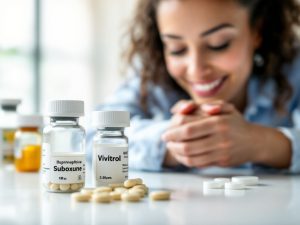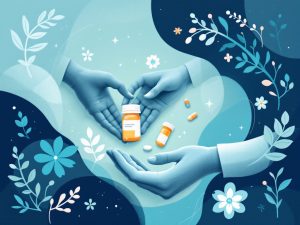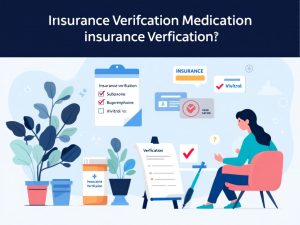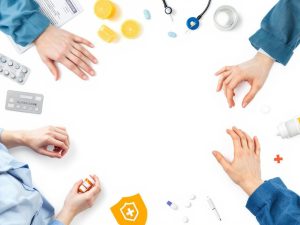If you are looking for a way to rebuild your life and maintain a stable recovery, life skills training for addiction may be the key you have been missing. This specialized approach empowers you to manage relapse triggers, develop self-awareness, and cultivate routines that support long-term success. By honing practical abilities in decision-making, communication, financial management, and emotional regulation, you can place yourself on a steady path toward lasting healing. Below, you will learn how these essential skills shape your future, how they integrate into a holistic treatment approach, and how Epic Health Partners stands ready to guide you every step of the way.
Explore life skills training
Life skills training is a therapeutic practice that equips you with proven techniques and strategies to function effectively in daily life. These strategies include stress management, coping with emotions, clear communication, and forming healthy routines. When you dedicate time and effort to develop these areas, you create a solid foundation crucial for ongoing recovery, particularly while adapting to life after treatment.
Why life skills matter
According to research, individuals who focus on developing these competencies are better prepared to avoid relapse triggers, set healthy personal boundaries, and build strong support systems (Green Hill Recovery). On a fundamental level, life skills training addresses the pieces many people in recovery may have missed or lost sight of during active substance use, such as budgeting, meal planning, or resolving interpersonal conflicts.
Cultivating such practical abilities not only improves your immediate well-being but also accelerates your transition into a stable, productive life. More importantly, acquiring these skills is about discovering your potential and reshaping your future. Life skills training can enhance your self-esteem, provide a sense of personal responsibility, and reduce the chaos often associated with addiction.
Skill-building and relapse prevention
Relapse often occurs when day-to-day stressors overwhelm individuals who lack effective coping mechanisms. When you can solve problems calmly, handle difficult emotions, and communicate your needs appropriately, the urge to resort to substance use declines significantly. For example, better stress management skills can keep you from turning to harmful behaviors in times of frustration or anxiety. Life skills training helps replace those harmful patterns with practical, positive tools.
Understand core skill sets
Although life skills training can be extensive, most programs concentrate on a few primary areas. Becoming proficient in these areas deeply influences your recovery journey, making it easier to adapt to daily responsibilities and cultivate an overall sense of well-being.
Communication and interpersonal skills
Good communication is essential in building healthy relationships. Whether you are trying to re-establish trust with your family or navigating a new job, effective communication can reduce conflicts and misunderstandings. Learning to articulate your thoughts respectfully can also help you hold firm boundaries, which is critical for relapse prevention. Many life skills training programs incorporate role-playing exercises and guided group discussions to help you learn these vital social skills (Green Hill Recovery).
Self-awareness and emotional regulation
Addiction can dull or distort your emotional responses. When leaving substance use behind, you may suddenly experience emotions with new intensity. This change is where self-awareness and emotional regulation strategies come in. Techniques like mindfulness, journaling, and therapy sessions build your ability to observe, process, and address emotions in a healthy way. If you need specialized support for intense trauma-based emotions, trauma informed addiction therapy can be integrated into your skill-building plan.
Problem-solving and decision-making
Many people in recovery struggle with lingering guilt, shame, or fear of making the wrong choices. By learning how to break problems into manageable steps, use critical thinking, and evaluate outcomes, you gain a sense of control over your life. In this framework, day-to-day dilemmas—such as how to handle financial shortfalls or relationship conflicts—become opportunities for growth rather than triggers for relapse.
Stress management and daily routines
Living with addiction often leads to chaos, where responsibilities slip, and daily structure feels unmanageable. Life skills training offers practical tools, including goal-setting exercises and time management tips, to bring balance back into your day. Mastering stress management can mean the difference between persistent frustration and a calm, clear head. This headspace allows you to succeed in work or school, manage family responsibilities, and maintain your sobriety.
Helpful stress management techniques
- Practice mindful breathing or guided meditation to center your thoughts.
- Develop a daily exercise routine, such as brisk walking or yoga, to relieve tension (PubMed Central).
- Schedule brief, intentional breaks throughout the day to rest and reset.
- Maintain a regular sleep schedule to keep energy levels stable.
Apply practical coping methods
Training in essential life skills goes beyond conceptual learning. Genuine progress often emerges from practical application in your day-to-day environment. By steadily applying these methods, you will begin to notice improvement in your confidence, relationships, and ability to handle obstacles.
Financial literacy
Financial strain can be a major relapse trigger, especially if it leads to stress and feelings of helplessness. When you learn to create budgets, monitor expenses, and save responsibly, you gain a strong sense of independence. This outlook ties directly to improved emotional well-being. Many life skills training programs address budgeting through hands-on exercises, such as simulated money management scenarios or collaboration with a financial counselor.
Self-care and personal wellness
Physical health and emotional health are closely connected. A solid self-care regimen that includes proper nutrition, regular exercise, and healthy sleep patterns provides much-needed stability for your recovery. According to research, exercise can help manage emotional distress, enhance mood, and support long-term recovery (PubMed Central). Likewise, mindful eating and balanced nutrition can help restore vital nutrients that contribute to improved mental clarity (Liftoff Recovery).
Healthy relationships and boundaries
When in active addiction, you might lean on social circles that enable—or even encourage—substance use. To build a healthier future, you have to re-evaluate old friendships, mend damaged relationships with family, or form new support networks. Learning to set boundaries prevents you from reverting to harmful patterns. If someone in your circle encourages unhealthy behaviors, it is crucial to recognize that dynamic quickly and respond in a protective way.
Overcoming cravings
In many ways, cravings are the last lingering threads of your addiction. Fortunately, life skills training aims to equip you with healthy coping mechanisms for these specific moments of vulnerability. Tactics such as thought-stopping exercises, grounding strategies, or reaching out to peers in support groups can help you ride out cravings until they subside. If you or a loved one struggles with opioid-related cravings, specialized opioid addiction treatment may be integrated into your plan, offering an added layer of support.
Find holistic therapy services
A powerful advantage of life skills training seems to come when it is combined with other evidence-based treatments. For instance, you might participate in cbt for addiction or dbt for addiction sessions to address negative thought patterns. You could also benefit from family therapy addiction to help rebuild trust among your loved ones or group therapy addiction to learn from the shared experiences of peers. By weaving these therapies into a broader life skills training framework, you have more comprehensive care that supports every facet of your journey.
Holistic programs and personalized paths
Programs that integrate life skills training, talk therapy, medications (where appropriate), and specialized counseling can adapt to meet your personal circumstances. Over time, these programs often expand to include complementary options like mindfulness therapy addiction, recovery coaching, or nutrition support addiction. The objective is always to cultivate an environment that promotes genuine, lifelong change.
Examples of holistic therapies
- Art-based or expressive therapy addiction
- Wilderness-based programs like wilderness therapy addiction
- Equine-assisted programs such as equine therapy addiction
- Holistic recovery therapy combining exercise and stress relief activities
- Virtual solutions like telehealth addiction counseling if you need flexibility or remote support
These varied options empower you to find something that resonates personally, making you more likely to stay motivated and engaged over the long term.
Choose Epic Health Partners
When seeking outpatient behavioral health, psychiatric, and substance-use care, finding a supportive environment that understands your unique challenges is critical. Epic Health Partners delivers comprehensive care coordinated by a team of professionals who recognize that success in recovery comes from a blend of empathy, expertise, and real-world application.
Supportive environment for lasting recovery
At Epic Health Partners, you will encounter a culture of compassion that acknowledges your daily struggles while emphasizing the hope and possibilities waiting ahead. The staff integrates life skills training across many of our offerings, ensuring that each therapy plan provides you with tailored treatment programs that address your exact needs. Whether you are tackling opioid use disorders, alcohol addiction, or any other substance-related challenge, our personalized approach gives you the tools to rebuild self-esteem, identify triggers, and maintain healthy coping strategies.
Why Epic Health Partners stands out
- Expert team: Our multidisciplinary staff includes psychiatrists, licensed therapists, and counselors thoroughly trained in evidence-based practices.
- Individualized plans: Your journey is different from anyone else’s, and our programs respect that by customizing your course of care.
- Comprehensive resources: We offer a wide range of therapies, including structured recovery program, justice involved support programs, and more, to ensure every area of your life receives attention.
- Convenient outpatient model: Because we focus on outpatient behavioral health, you can keep up with your daily routine while benefiting from professional guidance and support.
- Long-term commitment: Life skills training does not end when you walk out our doors. Our team is here to guide you through continuing care with resources like clinical intake assessment and insurance accepted outpatient care for ongoing support.
Holistic and evidence-based
Our care approach is grounded in proven strategies for effective recovery. We combine the most current clinical methods, such as non punitive outpatient care, with holistic elements that address mental, emotional, and spiritual well-being. As you progress in treatment, you will gain the support necessary for lasting recovery through life skills training, stress management, trauma-informed therapies, and an entire continuum of outpatient services.
Address common questions
Below are answers to five frequently searched questions about life skills training, addiction recovery, and how Epic Health Partners can help you or your loved one navigate a path toward healing.
What is life skills training, and how does it help addiction recovery?
Life skills training teaches you practical skills like problem-solving, communication, emotional regulation, and daily living tasks. By developing these abilities, you are better prepared to manage stressful situations, communicate your needs, and stay on track with your sobriety. This training fills gaps left by the chaos of addiction, paving the way for a stable, productive, and fulfilling future.Can life skills training prevent relapse?
Yes. One of the main goals of life skills training is to equip you with techniques for handling everyday difficulties without turning to substances. Whether you face financial problems, interpersonal conflicts, or emotional distress, the tools you gain through skill-building help you respond constructively. This approach significantly lowers your risk of relapse.How do I know if I need life skills training?
If you find daily tasks—like managing stress, paying bills, or talking through problems—overwhelming or unfamiliar, then you may benefit from this form of training. Many individuals in recovery discover that substance use overshadowed or derailed their development of basic coping strategies. In these cases, life skills training can help you regain lost confidence and independence.What types of therapies complement life skills training?
Techniques like cognitive behavioral therapy (cbt for addiction) and dialectical behavior therapy (dbt for addiction) work well alongside life skills training. Group counseling, family-based interventions, and even holistic outlets such as art or mindfulness therapy addiction also reinforce the benefits. This broader approach ensures every aspect of your life is addressed.Why should I choose Epic Health Partners for outpatient services?
Epic Health Partners emphasizes a personalized approach that respects your unique journey. We offer an extensive array of outpatient services, from family therapy addiction to group therapy addiction, along with specialized programs for particular needs, such as veteran addiction support or lgbtq addiction support. Our compassionate team remains focused on equipping you with the life skills necessary for sustainable change.
Embrace a new future
Life skills training is more than a collection of classroom lessons. It is a transformative process that helps you adjust to new responsibilities, develop healthy relationships, and sustain meaningful changes in your lifestyle. The practical strategies, coping methods, and routines you develop serve you well beyond graduation from any structured program.
By working side-by-side with skilled professionals who know how to support your unique challenges, you gain a chance to ground yourself in a better, healthier way of living. This balanced approach—pairing real-world, day-to-day skill development with specialized treatments—sets the stage for a long-lasting, empowering recovery.
Your next steps
If you or a loved one needs the support of a comprehensive outpatient program that integrates life skills training with proven addiction and mental health therapies, Epic Health Partners can be your advocate. Our mission is to provide a supportive environment and individualized plans that offer you the best chance at recovery. By choosing an approach that addresses every facet of life—from emotional well-being to practical skill-building—you can achieve meaningful progress and a more hopeful future.
You do not have to face recovery alone. Start building a foundation that fosters self-awareness, positive relationships, and fulfillment in your daily life. The path to lasting recovery begins with learning the skills that empower you to face challenges head-on and confidently embrace a healthier future. Epic Health Partners is here to guide you, every step of the way.







